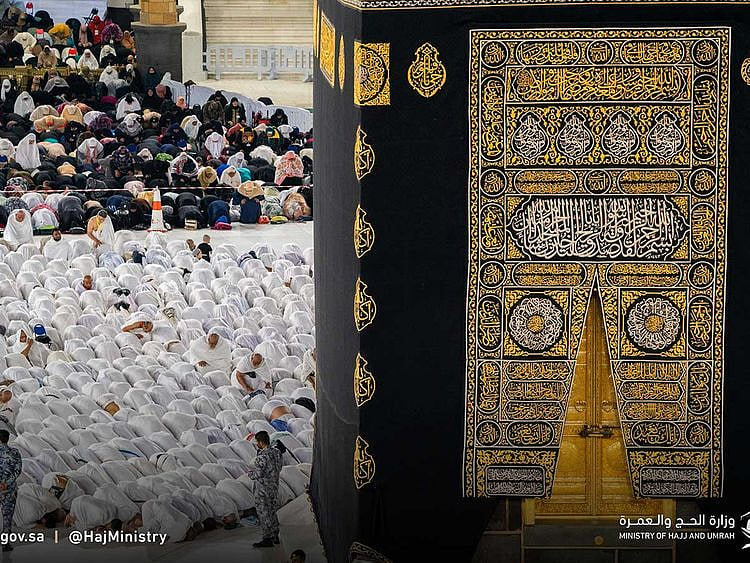51 languages for guidance at Islam’s holiest site
Multilingual interpreters direct worshippers to locations and services at Grand Mosque

Cairo: Some 51 global languages are used at the Grand Mosque, Islam’s holiest site in Mecca, to guide worshippers to locations at the sprawling place, a Saudi state agency in charge of the site has said.
Millions of Muslims from around the world flock to the mosque, which houses the Holy Kaaba, to perform prayers and Umrah or lesser pilgrimage. The annual Hajj pilgrimage is made in and around Mecca.
The General Authority for Care of the Two Holy Sites said that 78 interpreters are on hand daily to direct non-Arabic-speaking worshippers to locations and services inside the Grand Mosque and its outer courtyard.
The guidance service also updates worshippers on times of prayers, sermons and visits to Islamic museums and exhibitions.
Saudi Arabia, Islam’s birthplace, expects around 10 million Muslims from abroad during the current Umrah season.
In recent months, Saudi Arabia has unveiled a host of facilities for overseas Muslims to come to the country to do Umrah.
Muslims holding different types of entry visas such as the personal, visit and tourist visas are allowed to undertake Umrah and visit Al Rawda Al Sharifa, where the tomb of the Prophet Mohammed (PBUH) is located at the Prophet’s Mosque in the city of Medina after booking an e-appointment.
Saudi authorities have extended the Umrah visa from 30 days to 90 and allowed holders to enter the kingdom via all land, air and sea outlets and leave from any airport. Women pilgrims are no longer required to be escorted by male guardians.
The kingdom has also said that expatriates residing in the Gulf Cooperation Council countries are eligible to apply for a tourist visa, regardless of their profession, and be able to perform Umrah.
Sign up for the Daily Briefing
Get the latest news and updates straight to your inbox
Network Links
GN StoreDownload our app
© Al Nisr Publishing LLC 2025. All rights reserved.